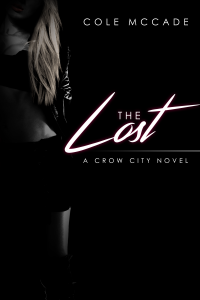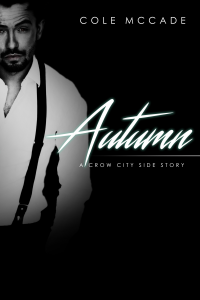Last night I was talking to a few writer friends about the head-demons that can completely devour any and all will or ability to write. You know those things: those nagging doubts and insecurities and concerns and petty jealousies that get inside your head and turn into a whirlwind of anxiety that completely stymies you and makes you wonder why you should even bother; it can dig pretty deep and create this narrative in your head where you’re basically Carrie covered in pig’s blood while Piper Laurie warbles they’re all going to laugh at you!
Except…no one’s laughing. No one even has any idea you’ve worked yourself up to nearly hyperventilating because of one subtweet or one perceived failure or one unanswered email or one unsent message or one tepid review. You know the poison your brain is swimming in is all crap, but you can’t seem to shut it up, and it’s just dragging you farther and farther away from your stories.
But just because you know it doesn’t mean you believe it when you tell yourself that, again and again. So I ended up writing this out to remind you; writing out the things you already know – not because I think you don’t know them, but because I think maybe, just maybe, a few anxious, melancholy writers out there might need to hear them again. Look at it as a reminder, a validation, an assertion that yes, those cycling, pervasively negative thoughts are wrong. You’ve got this.
You just need to remember to let go of some things, when you can.
1. Stop. Comparing. Yourself. To. Other. Writers.
Just stop, first and foremost. It’s wasted energy and it just builds up into bitterness, because you will always fill in these blanks in your head that make you feel like you’ve somehow fallen short – and that make you resent a stranger for this narrative you’ve constructed in your spiraling thoughts of some kind of tally between you. Just do you. Forget about what other people are doing. Learn when to shut off. Kick the hamster off the wheel.
2. No one else is comparing you to other writers, either.
Anxiety can make you feel like you’re on stage in an auditorium while faceless, looming masses judge you in condemning silence. Not happening. When another author does something great, there is no one who immediately stops and thinks, “Oh. Well. This other author didn’t do that thing. I guess they’re a failure.” You aren’t even on their mind, because the subjects of you and this other author aren’t even connected. In general, no one is watching you and tallying what you perceive as your failures. No one’s even aware of the fact that you feel like a failure. They know you’re an author, you’re there, you have books. That feeling that people are watching and judging is your anxiety projecting your own fears onto other people, not what other people actually think. No one is talking about you behind your back. No one is whispering about your sales rank or reviews or the fact that you might not be in with whomever is considered part of the cool kids’ club this week. They’re more likely to be worrying about potential bone atrophy from a diet of ramen and microwave burritos than judging what you’re doing.
3. You cannot mimic someone else’s success.
Don’t even give yourself the agita of trying to figure out their formula and duplicate it. It won’t work. It’s like trying to duplicate the environmental conditions of a natural disaster just to figure out the direction of the wind at a particular point in time on the south-facing edge of the disaster zone. What you do and what they do are entirely different things, and the serendipity that came together to make the right moment happen for them won’t be the same chain of events that leads to the right moment for you. Rather than trying to figure out how to duplicate them…watch for that one opportunity that could open entirely new doors for you. Keep an eye out for your chance, instead of fussing over missing their chance. Their chance was never yours. It doesn’t work that way. And on that note…
4. Someone else’s success is not your failure, or your loss.
In fact, it only has a very thin fractional amount to do with you, and only in tangential ways. Someone else succeeding in your genre or niche hasn’t taken anything away from you; if anything, it’s paved the way for a wider market for the kind of books you write, and just because X reader reads Y author doesn’t mean they will now not read you because they already have an author they like in that genre. It’s not a quota system. (Except for marginalized authors, it’s often regrettably a quota system, but we’re working to change that.) Readers who read to certain tastes tend to seek out more authors who align with those tastes while providing a new spin on the flavor. Someone else’s success doesn’t mean they stole your audience; it doesn’t mean they stole anything. It just means they cultivated a market that you can now share, and identified a reader base that you can leverage to find your platform.
5. Stop trying to race other authors.
You will never be the first to do something. Ever. The people you’re watching do X ahead of you? Weren’t the first to do it, either; what matters is that you do it your way, in a way that no one’s ever seen before. You will never catch up to other people’s release schedules, ideas, or markets, and why are you trying? Is it a competition thing? Are you trying to prove something? Are you backsliding to #1? Stop it. You’ll find your success when you find your success. The only time limit on it is your lifespan and capacity / ability.
6. Everyone gets rejection letters.
It can seem like for some people everything is coming up roses while you’re just accumulating dead trees stamped with the black ink of your bleeding soul, but just because those authors don’t talk about their rejections and disappointments doesn’t mean they don’t experience them. A lot goes on behind the scenes, even for Big-Name Authors. Contracts fall through. Negotiations fail. Publishers say “I just don’t see strong enough sales in the future to continue this series,” or even “I know you’ve a solid track record, but this story just isn’t right for us.” All the things you hear as a struggling author, all the disappointments you face…they happen to those people who seem to have an open door in publishing, too. Remember that behind the scenes, out of the public eye…they know that ache of opening a letter and seeing a “Thanks, but no thanks,” too. They’re just like you. Rejection letters are a fact whether you sell one book a year or one million, and it’s not as depressing as it seems. It is what it is, and I hope knowing that even BNAs get them stops you from feeling like you’re somehow lesser.
7. Don’t beat yourself up for not making bank on your books.
Even NYT Bestsellers often don’t make a living wage from their books, and generally have a day job and live average middle-class lives. Unfortunately for the majority being an author is not a particularly profitable business, and if you think everyone around you is raking in tons of cash…they’re not. Trust me, they’re not. Focus on increasing your sales for your own sake, but don’t try to live up to some imaginary idea of how much you think other authors must be making. If you don’t already have anxiety, you’ll develop it just angsting over this.
8. Stop minding other people’s business.
While you’re busy gnashing your teeth over how so-and-so is a hack, you could be writing your next book. That kind of mental energy gets deep in your head, and even when you’re not actively focused on it it impacts your ability to actually keep your mind on your writing. You can get in your own way in some really bad ways by sinking into this hole, while the people you’re tearing your hair out over are just happily moving on with their lives. If they’re hacks, why do you give a damn what they’re doing? Ignore them. Go write. Don’t take the love out of what you do by making it about them. Stop checking up on them, too. I know you do it. I know you do it. But they ain’t checking for you, so why you checking for them?
9. At the same time, and this goes doubly for marginalized writers…don’t let anyone steal your voice.
We’re still fighting some major battles over who has the right to tell which stories, and who can do so authentically. We still see privileged authors telling the stories of marginalized people and building their reputation and sales pipeline on that, while those same marginalized people telling their own stories get swept under the rug. Don’t let yourself be swept aside. Don’t be afraid to be loud, be bold, and be confident in the authenticity and strength of your story, and your voice. Speak with an authority that commands attention. And don’t beat yourself up for standing up for yourself, for saying Hey – this is not okay, this is misrepresenting our voices. You haven’t done anything wrong by speaking out.
10. Actually, everyone: don’t be afraid to talk about your work.
I’m ridiculously guilty of this – of being too self-effacing, of not wanting to turn my social media from a personal space into a shill market. It’s true, no one pays attention to an author account that’s nothing but “BUY NOW” spam. But if you’ve built a reader following on social media, they’re there because they love your stories and they want more. They want those little personal moments when you share a random thought about a character they love; they want those little teasers that are like foreplay leading up to getting their hands on your book. They want to feel how excited you are about writing a book, because it informs their excitement about reading it. Talk to your readers, when you have the spoons to do so. Answer fan questions. Let them know they’re fucking special to you, that they matter to you. Send out your fucking newsletter! They signed up for it for a reason! (That was more of a note to self jesus christ why do I never.) Your readers might like you as a person and be entertained by your anecdotes about those f@*$!ng IKEA dowels, but if they love your books it’s not hubris, arrogance, or bragging to give them more of what they love. Do it smartly and make it personal to them; make it for them, and engage with people about your books. You don’t have to be humble. You really don’t. You just have to be smart, human, approachable, self-aware, and not an arsehole (well, unless that’s your brand). Consumers want something to consume, so give them what they came for.
11. Don’t be afraid to ask your friends for help.
Really. I’m terrible about this, too, because I’m always terrified that people will think I have some personal/mercenary motive in the friendship. I know there’s weird politics in interpersonal relationships in publishing; there’s a feeling that people get where they are through their connections, and it’s not 100% wrong, but it’s not so nefarious as that makes it sound. While yes, some shady nepotism and privileged bias does happen…what’s usually happening is people leaning on their community, and their community leaning back. You’ve got your own community; it’s okay to lean. It’s okay to ask, and not feel like you’re somehow taking advantage – as long as when your community asks, you’re there for them as well. Many authors get where they are because their friends lift them up…but they lift their friends up, too. It’s not some conspiracy (we’re speaking generally and not on the deeper issues of privilege that need to be analyzed and addressed industry-wide). It’s just people being supportive. So don’t be afraid to ask for a little support.
12. …and support other people in your genre.
Being an author doesn’t put you in some ivory tower where you no longer talk about books you love. Talk about the books you love, share them, discuss authors who inspire you, authors you admire. It’s not sucking up; it’s building your genre, and building word of mouth for the authors who paved the way for you. Even long-established authors need to hear it now and then, and who knows, they may even talk back. You never know – you might even find out they love your work, too. It’s okay to share what you love, and if people are going to judge you on it? Um, well…they can go the hell back to #8.
13. Read your good reviews.
It’s okay. No, seriously. I don’t believe in stepping on reviewers’ toes by interacting with them on their reviews; to me it’s a sacred space that’s for readers, not for authors, and few reviewers like to feel like authors are helicoptering over them with a judgmental eye for what they’re saying, or even want to interact with authors regarding reviews unless they directly tag them. But. I still read my good reviews, when I need a pick-me-up. It’s okay to sneak onto GoodReads and quietly, secretly devour those 5-star reviews. Bookmark some of the ones that give you the best feels. Remind yourself why you do this; remind yourself that people love what you do. Give yourself a pick-me-up.
14. I hope I don’t have to tell you not to read your negative reviews.
Just don’t do it. Don’t neg yourself like that dude at the bar with the weird head wobble and too much shellac in his hair. You don’t want that. Nobody wants that.
15. Unless…they’re calling your attention to something problematic that hurts marginalized people.
Engaging in a learning discussion in that situation may hurt, but you’ll be a better author for understanding where you went off course. It’s okay to admit being wrong. It’s okay to admit you failed. It is. Your career is not over if you say “I fucked up. I’m sorry. I’m listening, I’m learning, I’ll improve.” If someone calls you out on something problematic, don’t panic. Breathe. Listen. Do better. Stop beating yourself up as some kind of terrible person; it’s not about you anyway, in the end, so just drop those negative feels you’re heaping on yourself and turn that energy into learning from the mistake and listening to the people willing to educate. Once you stop being afraid of being wrong, you’re that much closer to getting it right.
16. Let yourself take breaks.
Like I said, this isn’t a race. Sometimes when you’re not writing, your mind is percolating, subdividing, processing, tessellating, subconsciously putting together all those bits and pieces until suddenly it clicks and you’re ready to write again. Stop beating yourself up for those days to breathe, process, and let your subconscious order your scattered thoughts and ideas. Stop trying to force it. You aren’t a failure if you didn’t write today. And if you’re disabled, please, please protect your spoons. Work at your own pace. Do what you can, when you can. Don’t let ableism and ableist expectations bait you into overextending yourself and draining your capacity. It’s okay to need to stop, step back, and take care of yourself.
17. It’s okay to have boundaries.
With the social aspect now deeply inherent in being an author, there will always be people, both well-meaning and not, who cross your boundaries. It’s okay to be firm in saying “That’s not something I want to discuss.” Whether it’s protecting the people in your private life, protecting your identity and job, reminding people not to cross sexual lines, or just skirting things you don’t want to talk about…it’s okay to drop out of the conversation and just not answer, if it gets uncomfortable and crosses your lines. Change the subject or sign off, if you don’t want to directly point out that someone is making you uneasy. If someone is attacking you, block them or ignore them or chew them out or whatever you feel you need to do to draw your boundaries. Some people are comfortable having very few boundaries in their social engagement as an author; if that works for them, great, but don’t feel like you have to follow their example if it’s not right for you. From the moment you publish your first book you’ll have to set a clear line between the book as a commodity and yourself as a person who produces that commodity, rather than something to be consumed for others’ pleasure yourself. How much of yourself you’re willing to give in audience engagement is at your discretion…and you aren’t a terrible person for asking people to respect that, or reinforcing the lines when they get blurred.
18. Nearly everyone else is socially awkward, too.
While there are some people in publishing who sail through social interactions with either consummate grace or a well-warded shield of DGAF…most other people are trying just as hard as you are not to make complete and total arses of themselves. They’re fretting over whether they came on too strong, or working up the nerve to talk to someone, or wondering if they stuck their foot in their mouth…just like you. And if you think they think poorly of you after a social interaction? They’re more likely thinking poorly of themselves, and rather than thinking they don’t like you, they’re probably worrying about whether or not you like them. When in a crowd of people who spend the majority of their time wrapped up in their heads talking to imaginary people, you’re going to end up with a uniquely socialized group full of raggedy edges trying to figure out how they fit together. We’re the puzzle pieces with Deadpool’s curvy edges, but please don’t ask if we’ll stick it in your a –
19. …ahem. Moving on…grudges are not the end of the world, or the end of you.
Sometimes conflict is going to happen. It’s inevitable. People who tell stories for a living tend to be unsurprisingly good at stumbling their way into drama sooner or later, usually with each other. You’re going to burn a bridge here and there. There’ll be incompatible personalities. Misunderstandings. Missteps. But it’s over. It’s done. Whomever you had the conflict with is not going to impact your future as an author; they’re going to go their way, while you go yours. There will always be things you wish you said; always be things you wish you said better. Always be misunderstandings you want to clear up, corrections you want to make. Old hurts that still pain on a quiet day when your thoughts start to drift. But the best thing you can do for yourself is let it go. You aren’t the only one who’s had some kind of falling out with someone in the industry. You haven’t been black-balled. You aren’t a pariah. It’s pretty normal, happens every day…and yet somehow the wheel still keeps turning, the machine still keeps churning, and you’ve still got all the other friends and connections you’ve made. And once the dust settles…you’re okay. So let the grudge go.
20. Social media is not everything.
It’s important, but it’s just the foam on the surface of a deep, deep sea. Social media can be fun – like, enough fun that you forget you’re supposed to be working because someone just posted a video of Drumpf’s eyebrow detaching and crawling off his face. It’s a nonstop party. It’s also nonstop drama, headache, and stress, and sometimes it’s hard to separate out and remember that it’s a professional tool as much as it’s a social one. And there’s the matter of figuring out how to build a following, too; having an engaged following is better than having a large following (though having a large, engaged following is still ideal). But remember that everything that goes on on social media is transient; it’s short-term moments, while the process of creating a book has a long lifecycle. In the end social media only carries so much weight in that lifecycle, and while it’s valuable for making connections and engaging with your readers and discussing trends, it can also be distracting, expose you to negativity and doubt, and enable you to feed your anxieties, including worrying what people think of your social media persona – worrying that people are judging your content, your follower/friend count, your BNA count, your following to followed ratio, etc…when they’re not.
It’s okay to shunt it to the back of your mind. Stop checking engagement metrics, counting RTs and faves, watching who did or didn’t RT or share or Like or comment. Excuse yourself when you need to. Your work is in the writing; your social media is just the public face you put on that, not the core of your author career. You don’t have to treat it like a popularity contest, and even if you do…that’s not a contest you need to win. Stop worrying about your social media popularity. Just do you. Do your books. Be there when you want to be; don’t when you don’t. Forced social media engagement is worse than none at all when it comes to building an authentic online presence, so just let yourself stop worrying about it, and stop treating it like the sole key to finding your niche and creating your career. It’s only one tool in an arsenal. Use it when it’s relevant; set it aside when it’s not, and don’t give yourself anxiety over plunging deeper into the social sphere than you can handle on any given day.
Feeling any better? No? Yes? Purple? Did I just put worries and doubts in your head that you didn’t have before?
Then go back.
Read it again.
And remember that you’re not alone in these doubts. Other authors are flailing just as much as you are.
But one way or another, we all find a way to muddle through. Tell your demons to shut the fuck up. Turn the music up loud enough to drown them out. Type so fast they can’t keep up. Because even if you think you don’t…
You’ve got this.
LATEST NEWS
 NEW CROW CITY COVERS NEW CROW CITY COVERSThe Crow City Series now has a new cover set – dark, sleek, and just in time for the latest book in the series. See the full series covers here. |
|
 AUTUMN (CROW CITY #2.75) AUTUMN (CROW CITY #2.75)The latest installment in the Crow City series is here – with series favorites Walford Gallifrey and Joseph Armitage returning in a poignant story of reconciliation and newfound love in the first contemporary M/M in the Crow City Series. |






